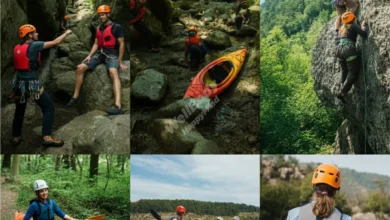Seasonal Sleep Hygiene: Adapting for Better Rest Year-Round

Introduction
Did you know that the changing seasons can significantly impact your sleep quality? A study by the National Sleep Foundation found that 41% of adults report that their sleep is affected by seasonal changes. As the world around us shifts, our sleep patterns often struggle to keep up. But don’t worry – with the right knowledge and tools, you can adapt your sleep hygiene to stay well-rested all year round.
Sleep hygiene refers to the habits and practices that help you get a good night’s sleep. These habits are crucial for your overall health and well-being. However, as seasons change, so do the challenges to maintaining healthy sleep patterns. Let’s explore how seasonal changes affect our sleep and learn how to adapt our sleep hygiene accordingly.
How Seasonal Changes Affect Sleep
1. Changes in Daylight Hours
As the Earth rotates around the sun, the amount of daylight we receive changes throughout the year. This shift affects our internal body clock, also known as our circadian rhythm.
Our bodies produce a hormone called melatonin, which helps us feel sleepy. The production of melatonin is influenced by light exposure. When it gets dark, our bodies make more melatonin, signaling that it’s time to sleep. When it’s light, melatonin production decreases, helping us wake up and feel alert.
2. Temperature Fluctuations
Your body temperature plays a key role in your sleep quality. As seasons change, so do the temperatures around us. Our bodies naturally cool down slightly as we prepare for sleep. When it’s too hot or too cold, it can be harder to fall asleep and stay asleep.
3. Seasonal Allergies
Spring and fall often bring allergies for many people. Stuffy noses, itchy eyes, and coughing can make it difficult to get a good night’s rest. These symptoms can disrupt your sleep, leaving you tired and groggy the next day.
4. Psychological Effects
Seasonal changes can also affect our mood and energy levels. Some people experience a condition called Seasonal Affective Disorder (SAD), especially during winter months with less sunlight. This can lead to feelings of sadness or low energy, which may impact sleep patterns.
By understanding these seasonal effects on our sleep, we can take steps to adjust our sleep hygiene practices. In the next sections, we’ll explore specific challenges for each season and learn how to adapt our sleep routines accordingly.
Seasonal Sleep Challenges

Each season brings its own unique set of challenges when it comes to maintaining healthy sleep patterns. Let’s explore how different times of the year can affect our sleep and what specific issues we might face.
Summer Sleep Struggles
Summer often means longer days and shorter nights. This change in daylight hours can throw off our natural sleep-wake cycle. Here are some common summer sleep disturbances:
- Excess heat: Higher temperatures can make it harder to fall asleep and stay asleep.
- Extended daylight: The sun setting later can delay our natural bedtime.
- Increased social activities: Summer often brings more evening events, disrupting regular sleep schedules.
- Travel and vacations: Changes in time zones and sleeping environments can affect sleep quality.
Fall’s Sleep Shift
As summer fades into fall, we face new sleep challenges:
- Shorter days: Less exposure to natural light can affect our circadian rhythm.
- Temperature changes: Cooler nights might require adjustments to bedding and room temperature.
- Back-to-school stress: For many, fall means a return to more structured schedules, which can cause sleep anxiety.
Winter’s Sleep Woes
Winter brings its own set of sleep issues:
- Lack of sunlight: Shorter days can lead to Vitamin D deficiency and mood changes.
- Cold temperatures: While cooler rooms are good for sleep, extreme cold can be disruptive.
- Holiday stress: The busy holiday season can lead to irregular sleep patterns.
Here’s a comparison of winter sleep challenges to other seasons:
| Challenge | Winter | Other Seasons |
|---|---|---|
| Daylight | Least | More varied |
| Temperature | Coldest | More moderate |
| Mood Impact | Highest risk of SAD | Lower risk |
| Sleep Duration | Often longer | Usually shorter |
Spring Sleep Adjustments
As we move into spring, we face unique sleep issues:
- Increasing daylight: Longer days can make it harder to fall asleep at our usual time.
- Temperature fluctuations: Unpredictable weather can make it challenging to maintain a comfortable sleep environment.
- Allergies: Spring allergies can cause congestion and discomfort, disrupting sleep.
- Daylight Saving Time: The “spring forward” time change can disrupt our sleep patterns for several days or even weeks.
Understanding these seasonal sleep challenges is the first step in adapting our sleep hygiene practices. In the next section, we’ll explore specific strategies for adapting sleep patterns to each season, ensuring you can maintain good sleep habits year-round.
Adapting Sleep Hygiene for Each Season

Now that we understand how each season affects our sleep, let’s explore specific strategies to adapt our sleep hygiene throughout the year. By making seasonal adjustments, we can maintain good sleep habits and wake up refreshed, no matter the time of year.
Summer Sleep Tips
Keep Your Bedroom Cool
- Use light, breathable bedding
- Consider using a fan or air conditioning
- Close blinds during the day to prevent heat buildup
Manage Light Exposure
- Use blackout curtains to block out early morning light
- Wear an eye mask if needed
- Dim lights in the evening to signal bedtime to your body
Adjust Your Bedtime Routine
- Take a cool shower before bed
- Avoid heavy meals close to bedtime
- Stick to your regular sleep schedule, even with longer daylight hours
Fall Sleep Strategies
Gradually Adjust Your Sleep Schedule
- Start going to bed 15 minutes earlier each week as days get shorter
- Wake up at the same time each day to maintain consistency
Light Therapy Options
- Spend time outdoors during daylight hours
- Consider using a light therapy box in the morning to boost mood and energy
Calming Pre-Bed Activities
- Read a book
- Practice gentle yoga or stretching
- Try meditation or deep breathing exercises
Winter Sleep Solutions
Maximize Natural Light Exposure
- Open curtains as soon as you wake up
- Take a midday walk to get some sunlight
- Sit near windows when indoors
Create a Cozy Sleep Environment
- Use warm, comfortable bedding
- Keep your room slightly cool (around 65°F or 18°C) for optimal sleep
- Use a humidifier to combat dry winter air
Winter-Specific Sleep Aids Aid Benefit Weighted blanket Provides comfort and reduces anxiety Warm, non-caffeinated drinks Helps relax the body before bed Aromatherapy (e.g., lavender) Promotes relaxation and better sleep
Spring Sleep Adjustments
Deal with Time Changes
- Gradually adjust your sleep schedule a week before Daylight Saving Time
- Expose yourself to bright light in the morning to help reset your body clock
Manage Allergies for Better Sleep
- Keep windows closed during high pollen days
- Shower before bed to remove allergens from your skin and hair
- Use hypoallergenic bedding
Spring Cleaning for Better Sleep
- Declutter your bedroom for a more peaceful environment
- Wash all bedding in hot water to remove dust mites
- Flip or rotate your mattress for better support
By implementing these seasonal sleep hygiene practices, you can adapt your sleep patterns to the changing seasons. Remember, consistency is key when it comes to good sleep habits. In the next section, we’ll discuss year-round sleep hygiene practices that complement these seasonal adjustments.
Year-Round Sleep Hygiene Practices

While adapting to seasonal changes is important, some sleep hygiene practices remain crucial all year long. Here are some key habits to maintain consistently:
Consistent Sleep Schedule
- Go to bed and wake up at the same time every day, even on weekends
- This helps regulate your body’s internal clock
Create an Ideal Sleep Environment
- Keep your bedroom dark, quiet, and cool
- Use comfortable bedding and pillows
- Remove electronic devices that emit blue light
Pre-Sleep Routines
Establish a relaxing bedtime routine to signal to your body that it’s time to sleep. Consider:
- Reading a book
- Listening to calming music
- Practicing gentle stretches or yoga
- Writing in a journal
- Taking a warm bath
Diet and Exercise Considerations
- Avoid caffeine and large meals close to bedtime
- Regular exercise can improve sleep quality, but avoid vigorous workouts close to bedtime
- Stay hydrated throughout the day, but limit fluids before bed
When to Seek Professional Help

While adapting your sleep hygiene can solve many sleep issues, sometimes professional help is needed. Here are signs that seasonal changes might be severely impacting your sleep:
- Persistent difficulty falling asleep or staying asleep
- Daytime fatigue that interferes with daily activities
- Mood changes that coincide with seasonal shifts
- Snoring or gasping during sleep (as reported by a partner)
Sleep disorders related to seasonal changes can include:
- Seasonal Affective Disorder (SAD)
- Shift Work Sleep Disorder
- Delayed Sleep Phase Syndrome
If you’re experiencing these symptoms, consider consulting:
- Your primary care physician
- A sleep specialist
- A psychiatrist specializing in sleep disorders
These professionals can provide targeted treatments, which may include light therapy, cognitive behavioral therapy for insomnia (CBT-I), or medication when appropriate.
Conclusion
Adapting your sleep hygiene to seasonal changes is a powerful way to improve your overall well-being. By understanding how each season affects your sleep and implementing the strategies we’ve discussed, you can maintain good sleep habits year-round.
Remember:
- Pay attention to changes in daylight, temperature, and your environment
- Adjust your sleep routines as seasons change
- Maintain consistent sleep practices throughout the year
- Seek professional help if sleep problems persist
Good sleep is crucial for your physical health, mental well-being, and daily performance. By taking control of your sleep hygiene, you’re investing in a healthier, happier you.
We encourage you to start implementing these strategies today. Small changes can lead to big improvements in your sleep quality. Sweet dreams!



